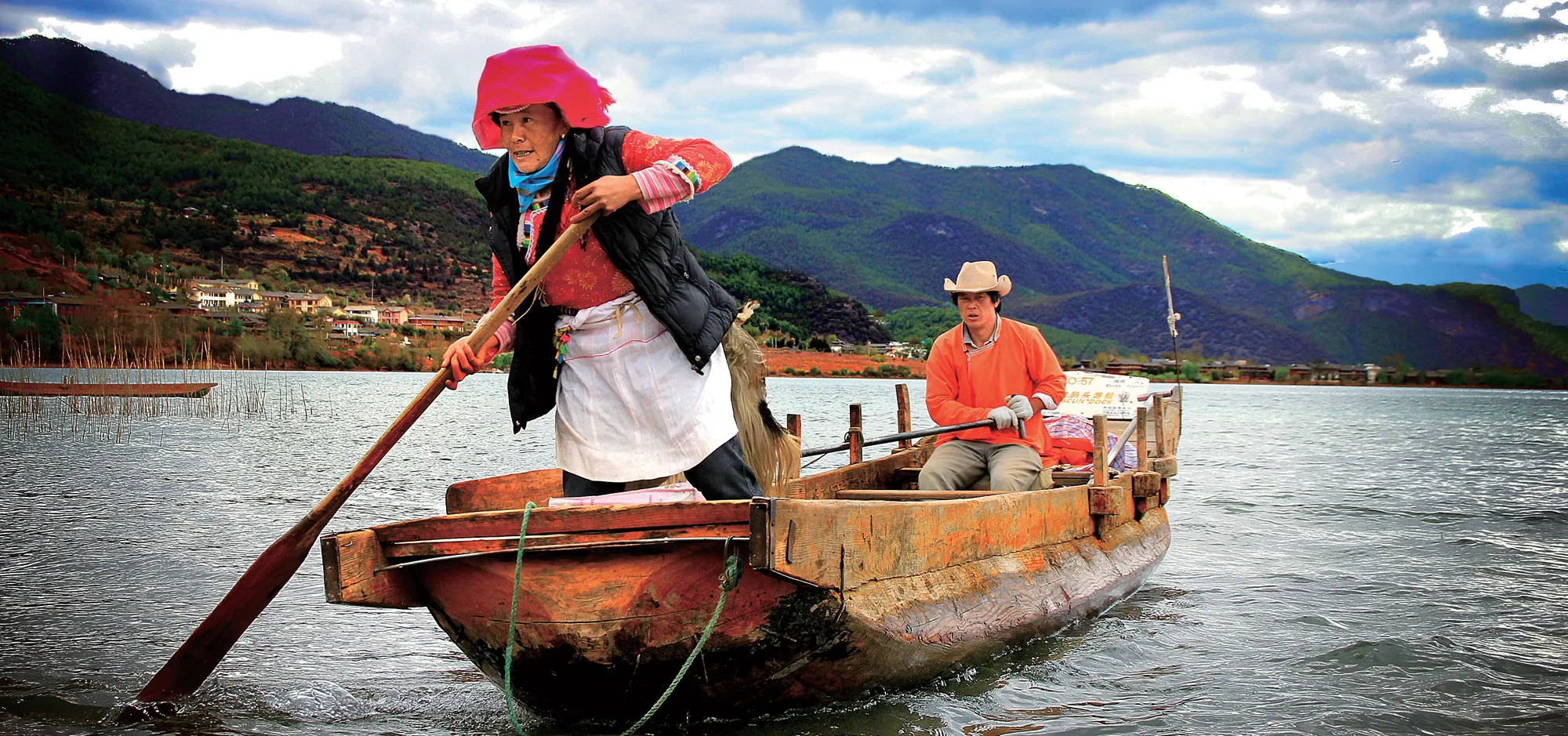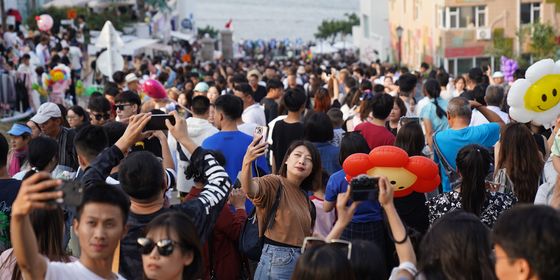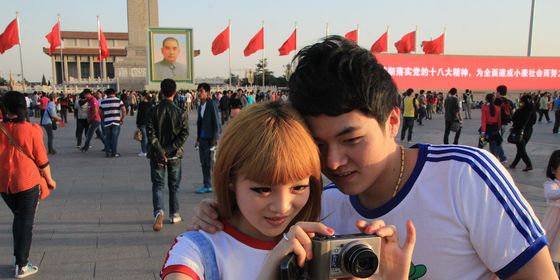On Lugu Lake, China’s last matrilineal culture is in chaotic transition
Gemu Mountain, the highest peak beside Lugu Lake, bears striking resemblance to the profile of a slumbering woman: forehead, nose, chin, elegantly curved neck, and sloped breasts clearly defined. According to lore, Gemu was a goddess who trysted with several male gods down on earth, but missed the deadline to go back up to heaven. She instead turned into a mountain, watching over the lake and its people as a constant guardian (all her male lovers turned into smaller mountains surrounding her).
I wonder if Gemu is watching as our Tibetan driver, Mr. Yang, takes me and my traveling companions along the lake shore from Yunnan to Sichuan province. Yang shares the story of how he fell in love with a Mosuo woman, and left with her to work in the southeastern city of Guangzhou, before returning to Lugu Lake to have their child. While Mosuo typically inherit surnames from their mother, “we fought over whose surname our child would take—and almost divorced because of it—but I won,” Yang says triumphantly.
The Mosuo people, who number under 100,000 and have their own language, have lived for over two thousand years at the edge of Lugu Lake. For decades, the perceived exoticism of their matrilineal culture has been a draw for tourists, anthropologists, and journalists, many of whom portray it as a feminist utopia—a “Kingdom of Women” or “Nation of Daughters”—on the far-flung frontier of southwestern China.
Accessible only by horse until 1982, Lugu Lake straddles the border of Yunnan and Sichuan. The freshwater lake is the highest in Sichuan, nearly 2,700 meters above sea level, with waters so pure they shimmer green and blue at different depths. Today, freshly-paved roads connect it to the bustling tourist town of Lijiang, Yunnan, shortening a seven-day horseback ride to a smooth five-hour drive.
Mosuo on the Move is a story from our issue, “Dawn of the Debt.” To read the entire issue, become a subscriber and receive the full magazine.













